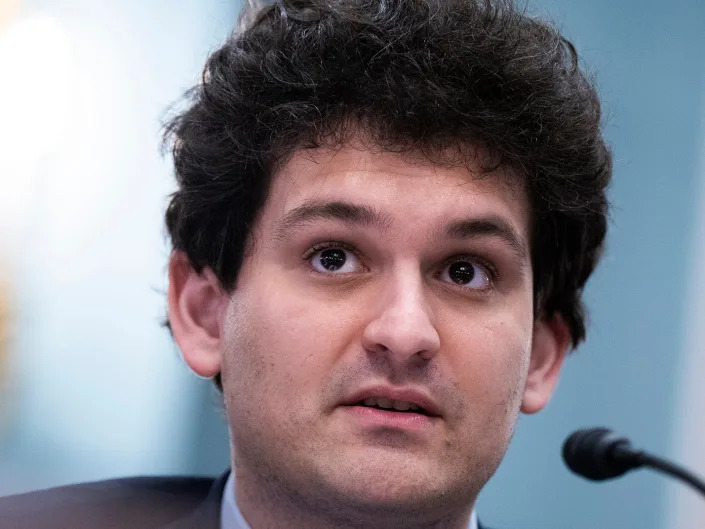
Venezuelan opposition leader Juan Guaido speaks during an interview in Caracas
Thu, December 22, 2022 at 3:11 PM MST·2 min read
CARACAS (Reuters) -Venezuela's political opposition to the ruling Socialists voted on Thursday by a wide margin to remove the interim government led by Juan Guaido, as they seek a united front ahead of presidential elections tentatively scheduled for 2024.
The motion was backed by three of four major opposition groups but rejected by Guaido's Popular Will and must pass through another consultation scheduled next week before it is finalized.
The other three major parties - Justice First, Democratic Action and A New Era - have for weeks been drafting a plan to create a board of directors to manage Venezuela's assets held abroad, especially U.S.-based refiner and fuel retailer Citgo, as a way to dislodge Guaido.
Acting as congress chief and interim president following Nicolas Maduro's disputed re-election as president in May 2018, Guaido in 2019 appointed the board of Citgo, a subsidiary of state oil firm PDVSA.
While mostly powerless at home where Maduro's government exercises control over nearly all institutions, including security forces, Guaido's interim government has supervised the foreign assets and runs many embassies.
Thursday's opposition motion passed in a virtual Zoom session with 72 votes in favor, 23 against and nine abstentions.
If approved next week, opposition lawmakers will then choose five representatives for the board of directors that will head assets held abroad, and Guaido's interim presidency, along with his government, will be removed.
Central to the debate is Citgo and the government's most important foreign asset.
A majority stake in the company was used as collateral for a bond on which PDVSA defaulted, but is being protected from creditors by a U.S. license that expires in January. Opposition groups hope this will be renewed.
Venezuela owes more than $60 billion to creditors for defaulted bonds and company nationalizations carried out under then-president Hugo Chavez.
Some U.S. courts have granted creditors permission to negotiate the sale of Venezuelan assets, but many remain protected by the U.S. government.
Guaido has been the face of Venezuela's opposition abroad since he declared himself interim president in 2019. But due mostly to the opposition's failure to remove Maduro from power, Guaido has fallen from favor.
Talks between the opposition and Maduro's government hosted by Mexico ended earlier this month with no further negotiations scheduled. At a late November meeting in the Mexican capital, both sides signed a deal to create a United Nations-run fund to combat the country's humanitarian crisis.
(Reporting by Vivian Sequera and Mayela Armas; Writing by Sarah Morland; Editing by David Alire Garcia and Grant McCool)
Venezuela’s Guaido Set to Lose Leadership Post After Failing to Unseat Maduro

Nicolle Yapur and Andreina Itriago Acosta
Wed, December 21, 2022
(Bloomberg) -- Almost four years after bursting onto the scene and gaining the recognition of more than 50 countries as the legitimate leader of Venezuela, Juan Guaido is set to be sidelined by opposition allies after failing to unseat President Nicolas Maduro.
Almost 70 lawmakers from Justice First, A New Era and Democratic Action, three of Venezuela’s four main opposition parties, say they have enough votes to ditch Guaido as their leader and create a five-member commission to take over his executive powers, representatives for the group said Wednesday.
The commission would be in charge of managing expenses and the country’s assets abroad, which are controlled by the opposition. The National Assembly, in charge of the group, would remain in place but only to debate on issues related to these resources while the interim government and most of its entities will be eliminated.
“We can’t continue with a strategy that has shown no results,” lawmaker Alfonso Marquina told reporters while presenting the proposal during a press conference in Caracas surrounded by representatives of other parties.
If lawmakers succeed in a vote to end his mandate, they will open the door to legitimize “the dictator,” Guaido said in a video on his Twitter account.
“This is not about Juan Guaido. The discussion isn’t about whether I have one role or another. It’s about defending the institution that gives possibilities to achieve change and defend democracy.” His interim government has been “useful” in delegitimizing the dictatorship, providing health aid to the people and protecting assets, he said.
The opposition’s move comes after Guaido failed in his strategy to remove Maduro by creating a parallel government with the support of international allies, following general elections in 2018 that were widely deemed fraudulent. While dozens of nations backed Guaido at first, now only a handful of governments, including the US, continue to recognize him as Venezuela’s legitimate president.
Maduro, who has begun to make international trips again and is lobbying for sanctions relief, is preparing for a possible presidential election in 2024. The opposition plans to hold primaries to get behind a single candidate to challenge him and are using talks with outside observers to try to secure guarantees for the future vote.
Guaido is only supported by his former party Popular Will and smaller allies. A definitive vote on the proposals is scheduled for next week, as the current charter expires Dec. 31





















 '
'








